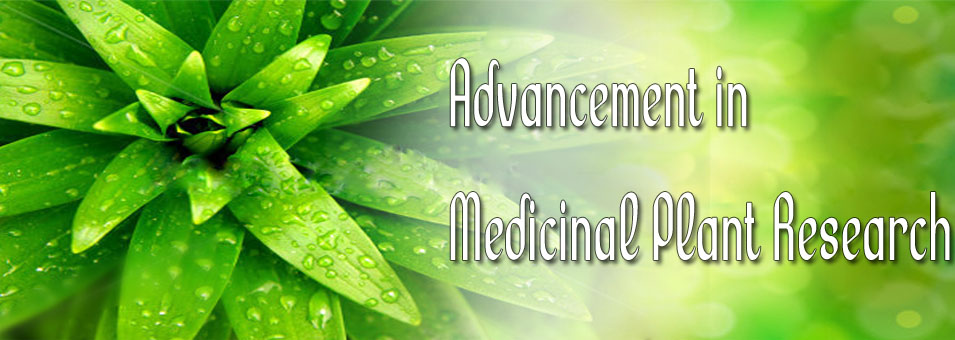Evaluation of the correlation between the chemical profile and the antalgic and anti-proliferative activities of essential oil of Elionurus hensii K. Schum
Aubin Nestor Loumouamou, Kévin Bikindou, Hermeline Ntalani, Thomas Silou, Pierre Chalard, Ombeline Danton, Laeticia Delort, Caroline Decombat, Florence Caldefie-Chezet, Cathérine Rubat-Coudert and Gilles FigueredoAdvancement in Medicinal Plant Research
Published: August 8 2017
Volume 5, Issue 3
Pages 41-46
Abstract
Elionurus hensii is usually used by peasant populations as a théiforme drink to relieve aches. The aim of this study was to evaluate the antalgic activity (AA) and antiproliferative activity (ATA) of essential oil of Elionurus hensii (VEH). Essential oils from the aerial parts and roots was extracted by hydrodistillation and analyzed by GC and GC/MS. AA was examined by using test cramps. This method consists in inducing cramps in the mouse by intraperitoneal injection of 0.6% acetic acid solution and to determine any inhibition of these cramps by the compounds contained in the VEH. Cytotoxicity of the essential oil was evaluated in order to assess their ATA on cancer cells MCF-7 using resazurin test. The study was carried out by considering 6 samples of VEH whose contents of major compounds vary. The major constituents are p-menthadienol isomers and limonene for samples from the aerial part, aristolone and limonene for samples from the roots. The most significant AA (inhibition percentage = 56.41%) was observed with a VEH containing p-menthadienol isomers (40.25%) and limonene (15.85%). The VEH containing limonene (20.21%) and aristolone (15.16%) also inhibit cramps with a percent inhibition of 48%. The pure aristolone extract of the essential oil inhibits to 36%. These first results confirm the traditional use of Elionurus hensii by peasant populations. The results of the resazurin test showed that the ATA is dose-dependent. VEH from roots, exhibited better anti-proliferative activity compared to the VEH from the aerial part. However, this activity is low.
Keywords: Elionurus hensii, essential oil, chemical compounds, GC/MS analysis, antalgic and anti-proliferative activities.
Full Text PDF
